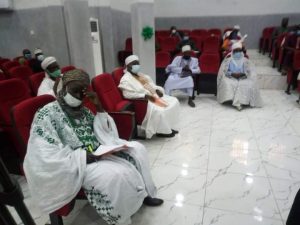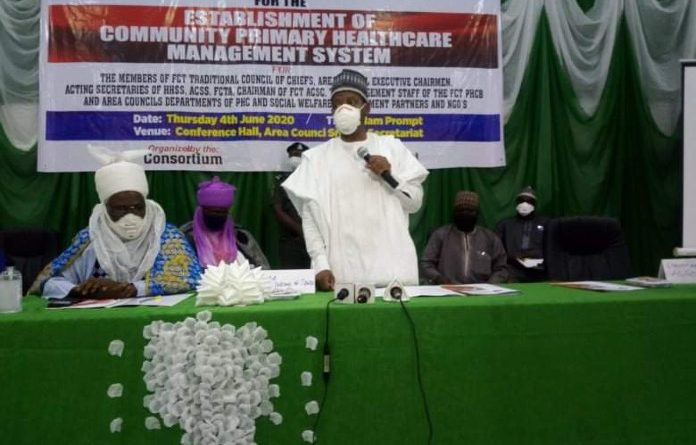FCT Holds One Day Sensitization Workshop for Community Primary Health Care Management System
Oru Leonard
At various times the Federal Capital Territory (FCT), Abuja in Nigeria, has made some efforts to achieve the goal of establishing the Primary Health Care Board as a governance structure, backed by the FCT PHCB Act, 2019 and to facilitate the realisation of the concept of Primary Health Care Under One Roof in the Federal Capital Territory of Nigeria. A Scheme which should be anchored on the principles of Equitable Distribution, Community Participation, Intersectoral Coordination and Appropriate Technology.
In furtherance of this, Continental Business and Leadership School Ltd and the FCT Primary Health Care Task Team facilitated a one day sensitisation workshop for key stakeholders for the establishment of the community primary healthcare management system in Abuja on the formation and operationalisat
At this first instance, Primary Health Care services in the FCT, formation of Fifty-five (55) villages and Eleven (11) Wards Committees would be facilitated to expand the availability of greater demand for quality health services and improve health outcomes.
Flagging off the event on sensitisation workshop for key stakeholders for the establishment of the community primary healthcare management system in Abuja on Thursday, June 4, 2020, the FCT Minister of State, Dr Ramatu Aliyu also gave the assurance that the ongoing renovation of 12 Primary Health Care (PHC) facilities across its six Area Councils would be completed soon.
Dr Aliyu revealed that another six PHC clinics would be upgraded to PHC centers and six more PHC centers would be rehabilitated across the six Area Councils.
The Minister of State who was represented by her Senior Special Assistant on Administration and Strategy, Prof. Muhammad Usman, said that FCTA provided noted special attention to matters that had direct impact on maternal and child health services.
Aliyu, who identified integrated healthcare delivery system as a key to socioeconomic development and progress of any nation, emphasised the need for active community participation.
She added that primary healthcare played a critical role in sustainable development, adding that PHC remains the means to achieving health for all.

Aliyu said that within a year progress has been made toward revitalisation of the primary healthcare scheme and linking residents to service, just as the administration had approved the implementation of the FCT-PHCB, 2019, and soon the FCT-PHCB with the Area Councils PHC governance structures would be established in line with the Act.
She acknowledged the deplorable state of primary healthcare infrastructure and the enormous amount of money required to rehabilitate them, but assured that a phased approach to fix them would be adopted.
“Health, which is a fundamental human right, requires PHC approach which allows for integrated care comprising preventive, promotive, curative and rehabilitative services extending from “womb to tomb.
“It is the first point of contact with the National Health System and a key to socioeconomic development and progress of a country.
“As a matter of fact, Universal Health Coverage cannot be achieved without the involvement of the local community.
“To strengthen PHC leadership and governance, the administration approved the implementation of the FCT PHCB Act, 2019 and soon the FCT PHCB with the Area Councils PHC Governance structures will be established in line with the act,” Aliyu said.
Earlier in his remarks, Dr Mohammed Kawu, Acting Secretary of FCT Health and Human Services Secretariat, noted that community PHC management system was one of the essential principles of the primary healthcare scheme.
Kawu explained that with inter- sectoral collaboration and equity in distribution of resources, community health outcomes would be improved significantly.
On his part, Alhaji Adamu Yunusa, Chairman, FCT Traditional Council of Chiefs, the Ona of Abaji, enjoined participants to come up with document that could be used by the administration that would lead to significant improvement in the primary healthcare sector.




